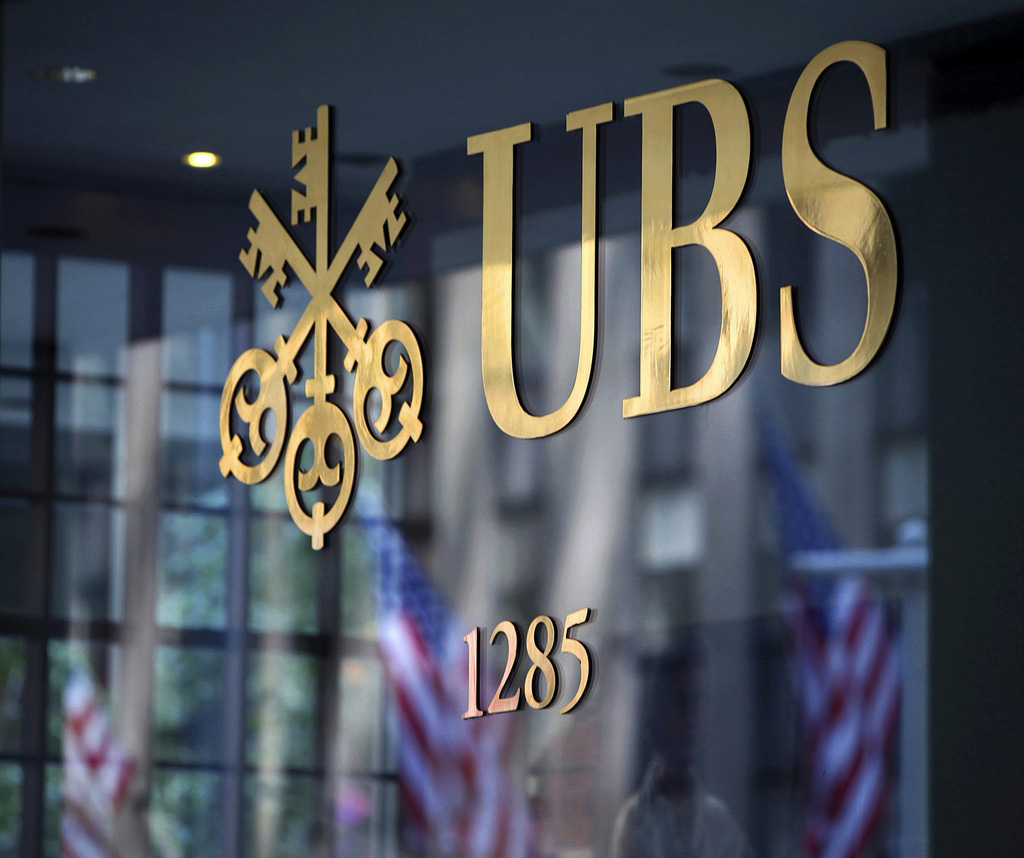Stark warning over UBS deal failure

A parliamentary vote blocking a bank-data sharing deal with the United States has prompted a backlash from economists fearful of the fallout for Switzerland.
The House of Representatives on Tuesday rejected the deal, a settlement reached between the US and Switzerland last year requiring the handover of confidential client data to save the Swiss bank UBS from legal action.
The deal will now go once again before the Senate before returning to the House of Representatives, where a final no vote would bury the deal for good.
The Swiss Business Federation (economiesuisse) warned that a final rejection of the deal would damage the economy and result in major instability. The group called for national interest to take priority over partisan views.
The federation said the vote had put Switzerland’s good economic relations with the US, an important partner, in jeopardy.
“Approving the deal is of the utmost importance for the Swiss economic centre,” urged its president Gerold Bührer.
“The negative consequences of non-ratification would affect not only the financial centre, but also numerous small and medium-sized businesses active in industry and the service sector. That must be avoided.”
“Potent mix”
Disappointed by the vote, the Swiss Bankers Association agreed the deal had to be done for the good of the country.
Director Urs Roth said parliament should approve the accord “in the interest of Switzerland” to avoid “very negative consequences” for UBS and the entire Swiss economy, he warned.
The US first sued the bank after allegations UBS had helped rich Americans stash portions of their wealth away from US tax collectors. US justice authorities fined UBS $780 million and the two countries reached a deal to disclose the details of 4,450 clients by August 20, 2010.
The issue had divided the political parties and was turned down by the centre-left Social Democrats who wanted but failed to obtain guarantees of restrictions for banks deemed “too big to fail”. The rightwing Swiss People’s Party does not want bonuses to be taxed and also shot the deal down.
Martin Naville, CEO of the Swiss-American Chamber of Commerce, told swissinfo.ch a combination of domestic and foreign economic policy issues with the Swiss-US treaty had created “a very emotional and potent mix”.
“I think the parties have done a big disservice to Switzerland, and we hope that this will be corrected in the ensuing process,” he said.
Naville predicted a loud outcry in the American press. “It will be followed by major uncertainty for all companies doing business with or in the US, and a high likelihood that the IRS would move relatively quickly to get what they think is theirs according to the treaty – the 4,450 names.”
The US could also put pressure on Switzerland using its current tax treaties as leverage or even put Switzerland on a tax-haven blacklist, he added. A statement from the US Internal Revenue Service (IRS) said the Americans “expect” Switzerland to honour the deal but remain “ready to persue all legal options available” if not.
Doug Schulman, head of the IRS, said he was still hopeful the deal would go through by the August deadline.
Economic poison
UBS would only say it had taken note of the vote. Shares in the bank were down 3.1 per cent on Tuesday morning, extending earlier losses following parliament’s vote.
Warnings of more instability echoed around political quarters. “[A full rejection of the deal] would lead to uncertainty for Switzerland as a place to do business. This would be poison for the economy,” Christophe Darbellay, head of the centre-right Christian Democrat party, said after the vote.
“We now have to find our way out of this crisis and … a sensible solution.”
Justice Minister Eveline Widmer-Schlumpf made a last-ditch appeal ahead of the vote, addressing parliament: “What do you want to achieve with that [rejection]? Wouldn’t it be in the interest of our economy … if we could put an end to this painful story.”
Trying to find the middle ground, centre-right Radical politician Charles Favre said: “We are not happy with this deal. It was a deal that was forced on us, as part of an age-old law. However, we will accept it because we consider it absolutely necessary for normalising relations with the United States. There are many places of work at risk and we need to take responsibility.”
Nationwide vote
Complicating the situation is another vote backed by the House of Representatives ensuring that the agreement, if accepted by parliament, will be put to a referendum.
The timing involved in holding a nationwide vote would prevent Switzerland from meeting the August deadline set in the deal.
Parliament spokesman Mark Stucki explained that there was no deadline set for agreeing on a new text, but the two chambers would have to work it out by the end of next week at the latest.
“But if they approve a referendum, Switzerland would not be able to deliver the data on time,” he confirmed.
The Swiss-American Chamber of Commerce said the prospect of a referendum on the issue would not help. Naville noted that it would in reality change the issue from a specific case on exchanging bank data to a vote about banking secrecy – a “no-win situation” for Swiss voters.
The Swiss Business Federation also said a referendum would be problematic and create uncertainty.
“Long periods of uncertainty damage an international economic centre and only give the advantage to competitors,” it warned.
Jessica Dacey, swissinfo.ch
Ten per cent of all Swiss exports go to the US, the second-largest single export market after Germany.
US companies in Switzerland make up 5%of Swiss GDP, the same as Switzerland’s wealth management sector.
The agreement in dispute is legal and binding under international law.
A new double-taxation agreement could be killed if the current deal does not go through.
Foreign companies, particularly US companies, operating in Switzerland would have difficulties staying in Switzerland if tax treaties are torpedoed or the country is placed on a black list.
Total companies potentially affected represent 35% of Swiss economy and roughly 1 million jobs.
Source: Swiss-American Chamber of Commerce
UBS is the world’s number two wealth manager by managed assets and Switzerland’s second-largest bank.
It has a workforce of more than 76,000 worldwide, including nearly 30,000 in the US.
In February UBS paid a $780 million fine and gave information on 285 clients after admitting that some of its bank employees had helped US citizens evade taxes.
UBS, which benefited from a multi-billion bailout package by the government, posted a record loss in 2008 and finished 2009 with a net loss of SFr2.74 billion.
A parliamentary report in May said the Swiss government failed in its treatment of UBS and in its leadership during the global financial crisis.
In the report, the parliamentary control committees said the government seemed to have lacked the “most elementary methods of working as a team” during the crisis.
The parliamentary committees called for action to prevent such crises. This includes written statements on consultations within the government and decisions taken.
In its call for a parliamentary investigation, the Swiss People’s Party said the committees’ report did not adequately explain why the names of 285 US customers of UBS had already been handed over to Washington. Nor was there enough information about the August 2009 deal on UBS between Switzerland and the US.
The House of Representatives supported such an investigation on March 18, with 123 votes against 39.

In compliance with the JTI standards
More: SWI swissinfo.ch certified by the Journalism Trust Initiative















You can find an overview of ongoing debates with our journalists here . Please join us!
If you want to start a conversation about a topic raised in this article or want to report factual errors, email us at english@swissinfo.ch.